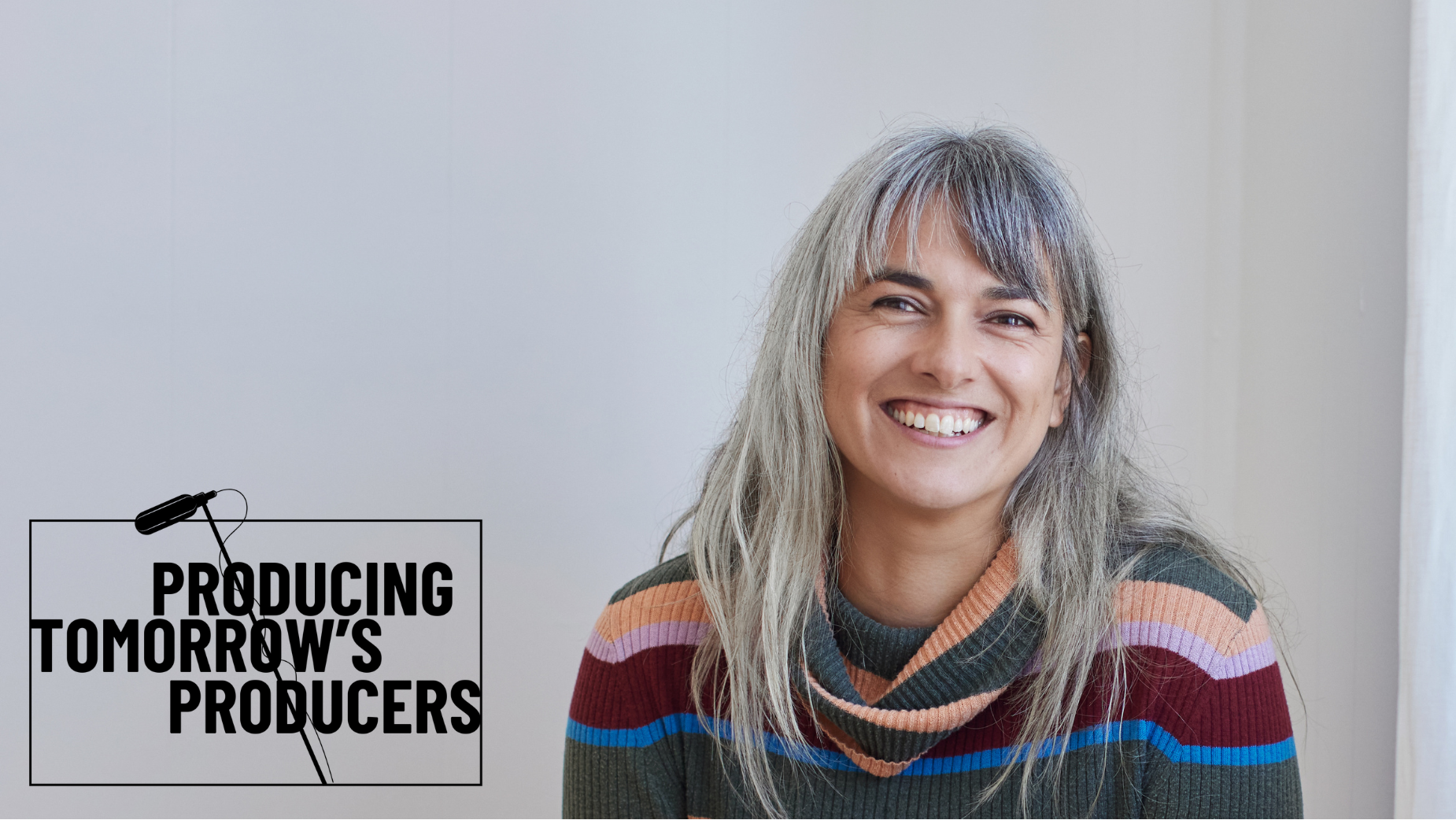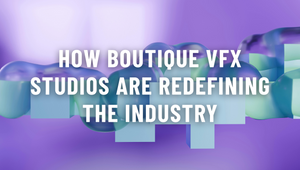
Modern Producers: Leave the Ego and Finger-Pointing Behind

Laura Hesse is a post-production producer with over 18 years of audio, colour and post experience. She's worked across numerous feature films and TV series, as well as countless advertising campaigns, and produced audio for various educational apps.
She's the senior producer at Moodlab and simultaneously on the cusp of launching a new audio post-studio. Laura has travelled the world, worked in post houses in London and Hamburg, and enjoys juggling a few creative side hustles at any one time.
LBB> What advice would you give to any aspiring producers or content creators hoping to make the jump into production?
Laura> Have open ears, you never know who you may end up in a conversation with, and what advice they could drop at any minute. You're only as good as the community you keep , so it’s incredibly important to stay humble and open to receiving wisdom and to keep learning from people who have been around longer than you.
I have a long list of thank yous owed to all the good people who helped me get to where I am today, not necessarily because of directly learning from them, sometimes they’ve just set a good example because they do their job well.
LBB> What advice would you give to aspiring producers?
Laura> I feel lucky to have started my professional career in the era of film and tape. I think the limitations of technology really drilled in some key processes that I still stick to. And I find these processes really do add value when a complex problem arises. They’re a bible of efficiency that I stick to.
With so much tech around, there’s a chance that we’re losing key processes and naturally undervaluing job roles. A producer needs to add value at every step of the process. For example, forwarding a huge email from a client to creative without highlighting key notes or flagging potential tech issues or budget limitations only creates a larger task for the person next down the line. AI and new tech are beneficial of course, but these tools shouldn't make us lazy. We need to honour our creative roles and processes while using tech for good.
LBB> What was the biggest lesson you learned when you were starting out in production -- and why has that stayed with you?
Laura> Don’t burn bridges. You’re only as good as your community. I’ve learned a bucket-load from so many nice people along the way. Sure, uni was great for technical learnings (lefty loosy, righty tighty), but choosing to go to advertising events as a uni student and network with people then helped to kickstart some of my working relationships that still exist today. People just want to do good, and it’s a symbiotic process, so if you’re aligned, a good working relationship can lead to great work.
Diversification and understanding multiple facets of the industry has also been helpful for me. (And it’s given me the confidence not to pigeon-hole myself in a small industry!) I’ve experienced so many different roles and working cultures that it’s challenged my own process and allowed me to see the industry through a more understanding lens.
LBB> When it comes to broadening access to production and improving diversity and inclusion what are your team doing to address this?
Laura> I’m honoured to be part of the Moodlab team, which is one of the first female-led independent post houses in Melbourne. CJ Dobson inspires me as a business owner . We’re always talking about diversity and inclusion and always getting into healthy discussion and debates.
Within my audio producer roles, I’m always casting diversely and actively looking for genuine accents to ensure broader representation.
LBB> And why is it an important issue for the production community to address?
Laura> The production community has a responsibility to address diversity 100%. Alongside every other industry in the world! In production, there is a ripple effect since the end-product is seen by so many people so it’s important to accurately highlight society.
Growing up as a child actor with Sri Lankan heritage, I was rarely cast in the lead role on TV, only ever the best friend. In mainstream Australian media at the time, the lead character was mainly a Caucasian blonde with a diverse best friend. There has been some change in casting since then. But it’s always beneficial -- financially and culturally -- for productions to actively introduce diversity as organically as possible.
LBB> There are young people getting into production who maybe don’t see the line between professional production and the creator economy. Is there a tension between these two worlds and how do they feed into each other?
Laura> Budgets are so different between these sectors, so really we need to consider that there is still a place for both to exist and that really, its development is in response to the emergence of a quicker and more dynamic creator economy.
I think there’s a danger of normalising cheap budgets between the shift in mediums, but the people involved still need to be talented. Though the industry is changing, we shouldn’t devalue people and their skillsets.
Creators need to uphold strong production values – and the quality of the idea has to be strong. The industry will continue to ebb and flow as different values are placed on each medium and platform.
Agencies and media companies have different perspectives around how they create media plans and reach audiences authentically. In post, we’ve have a whole new set of deliverables.and need an expert eye to consider the framing across different mediums.
As we move faster into the creator world, we need to continue respecting creative roles and the talent that makes campaigns great. The trick is to maintain the dynamism to work to a faster schedule and be open to opportunities, responding in a timely manner, and keeping budgets appropriate.
LBB> If you compare your entry to the industry as a producer to the role today, what are the most striking and interesting changes?
Laura> Previously, there was a very unhealthy understanding that you were only a good producer if you were busy and stressed. With the shift and awareness around mindfulness, there’s been a healthy shift that says you don’t need to be frazzled, skip lunch, or stay late to prove that you’re good at your job.
I don’t think there’s as much time and space for egos anymore. The industry is less forgiving of that kind of behaviour.
Producers still add value, support the creative, use their networks to help create good work, manage budgets, creatively problem solve, and get shit done. They’re still great.
LBB> When it comes to educating producers, how does your agency like to approach this?
Laura> Education makes a huge impact on producers, because they need to understand the tech capabilities of post-production. Knowing the limitations and possibilities will help with seeking out opportunities, pushing boundaries and problem-solving on the spot. Working with a supportive team who can teach the ways of tech will only speed up processes. Big post houses that once existed provided ample opportunity for more junior members to learn from senior members about 2D, 3D, sound, offline, online, making coffee etc. And this is helpful if it’s done in-person. For working in colour, it’s important to understand how the eye works with monitors, like the ear with sound production.
Problems create opportunities to learn. When a restripe hasn’t gone to plan, you count on your good working relationships with other suppliers to sort the problem out together. We’re all in the industry of providing a good end-product, so there’s no time for egos and pointing fingers when there’s a weird tech glitch. That’s when you need your community to help you understand the problem,. With tech being so accessible and fast these days, us producers still need to allow for the unexpected to happen.
LBB> There’s an emphasis on speed and volume when it comes to producing content – but what spaces exist for up and coming producers to learn about (and appreciate) craft?
Laura> Most of the producer learning comes from on the job experience. Appreciating film craft is important; and there’s plenty of craft-obsessed people in the industry to inspire. We recently attended a MADC workshop on craft with photographer Christopher Tovo and it was so interesting hearing about his approach to craft. There's always someone who’s creatively testing the boundaries of what’s possible with new technology, and sharing more details or their findings on YouTube. As an industry, we need to keep the creative muscle flexed.
There will always be good and average work out there. We need to invest in and fight for good work, because when it’s rushed or done poorly, people can tell.
LBB> On the other side of the equation, what’s the key to retaining expertise and helping people who have been working in production for decades to develop new skills?
Laura> It’s all about nurturing a community to pave the way for growth, education, and support.
Moodlab is designed to be accessible and help members to understand and optimise on technical shifts in our industry. Tech info is often dry and jargon heavy, so we try to use language that is easy to understand and covers people of different levels of experience. We have even created a glossary.
We’ve hosted information evenings, workshops and panel discussions about improving workflow. It’s something we want to do more of, because we believe that information sharing will improve the industry
LBB> What are the personality traits and skills that will always be in demand from producers?
Laura> The most in-demand producers know how to work with people in a way that encourages them to do their best work. That means being calm, collected and optimistic but also admitting when you don’t know something. If you select a good team, you don’t need to know everything. You can lean on each other.














